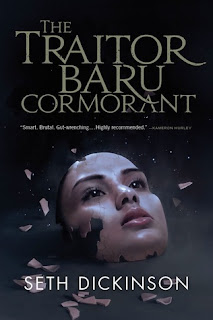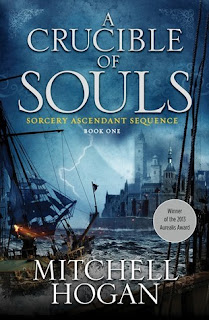With the scope of Dune and the commercial action of Independence Day, Three-Body Problem is the first chance for English-speaking readers to experience this multiple-award-winning phenomenon from China’s most beloved science fiction author, Liu Cixin.
Set against the backdrop of China’s Cultural Revolution, a secret military project sends signals into space to establish contact with aliens. An alien civilization on the brink of destruction captures the signal and plans to invade Earth. Meanwhile, on Earth, different camps start forming, planning to either welcome the superior beings and help them take over a world seen as corrupt, or to fight against the invasion. The result is a science fiction masterpiece of enormous scope and vision.
This is a hard review to write as I have mixed feelings about this book. On one hand it is a powerful and extraordinary story with massive scope and vision. On the other hand it's incredibly slow and clunky beginning left me feeling a little drained (and confused) by the middle of the book.
The Three Body Problem tells the story of the Trisolarans, an alien race whose civilisation has evolved in a triple star system on a planet where the forces of nature are in constant flux. Faced with eventual extinction, they decide upon a course of conquest (watch out Earth) in order to survive. Meanwhile on Earth, the threat of this impending invasion causes factions to form in order to determine our response (despite the fact the actual invasion is hundreds of years away due to the distances involved).
Opening with a brutal scene set in during the Chinese Cultural Revolution, the Three Body Problem launches into a plot that involves lots of violence and death, questions over the objectivity of science, and a secret Chinese SETI project involving a virtual reality game. And herein lies my problem with the first parts of this book. There was so much background to take it in and get my head around that I found myself bogged down at times. The story itself moves at a very slow pace, and whilst it all comes together in the end wonderfully there were times I contemplated not finishing (my advice, keep going, it's worth it). I also really struggled to connect with the main protagonists in these early parts. Ye Wenjie's moments were fascinating but too few and far between. And Wang Miao really didn't have an impact on me until significant plot points started to become clearer (global conspiracies, alien contact, and the role of the Three Body game). In saying this once I reached the halfway point of the book things started to pick up and become more exciting and immersive, as earlier plot points became clearer and the direction of the book more concise. The last part of the book, from the perspective of the Trisolarans, was exhilarating (note, basic knowledge of particle physics may aid in your enjoyment) and made the initial slog worth it.
The other saving grace for the Three Body Problem are the ideas and concepts that it deals with. I adored the notion of the Three Body game, and the discussions around alien contact and the SETI programs fascinating and complex. As someone who has long been fascinated by the prospect of first contact with an alien species I found how the Three Body Problem dealt with it to be both bold and original. I also enjoyed the snippets of political, cultural, and military history that were inserted (footnotes from Ken Liu, who translated this from its original Chinese, are provided) into the story.
Where the Three Body Problem is mainly let down is in it's weak characterisation in the first half of the story. Those early chapters are where a writer needs to hook in its readers, and I felt that the Three Body Problem failed to do this adequately for my taste. Some other reviewers have mentioned a couple of issues with the translation, and that may be a part of the problem with the first half of the book. As a Hugo Award winner (Best Novel 2015) though I decided to persevere with it, and ultimately I felt the book finished on a high both epic in scope and execution that left an intriguing set up for the next instalment.
The Three Body Problem was a fascinating and original story with some flaws. Ultimately though its incredible breadth and scope, when paired with its discussion of alien contact, make this book well worth the read.
3.5 stars out of 5.
A review copy was provided.






